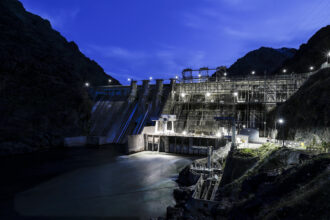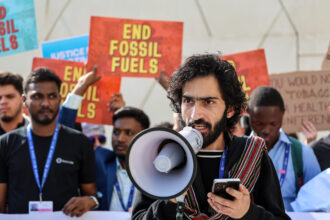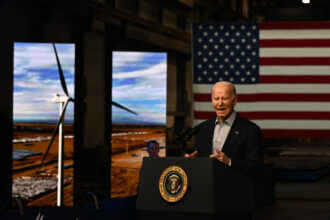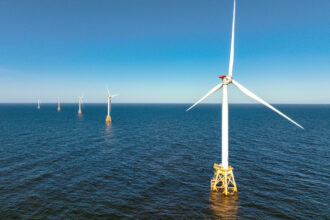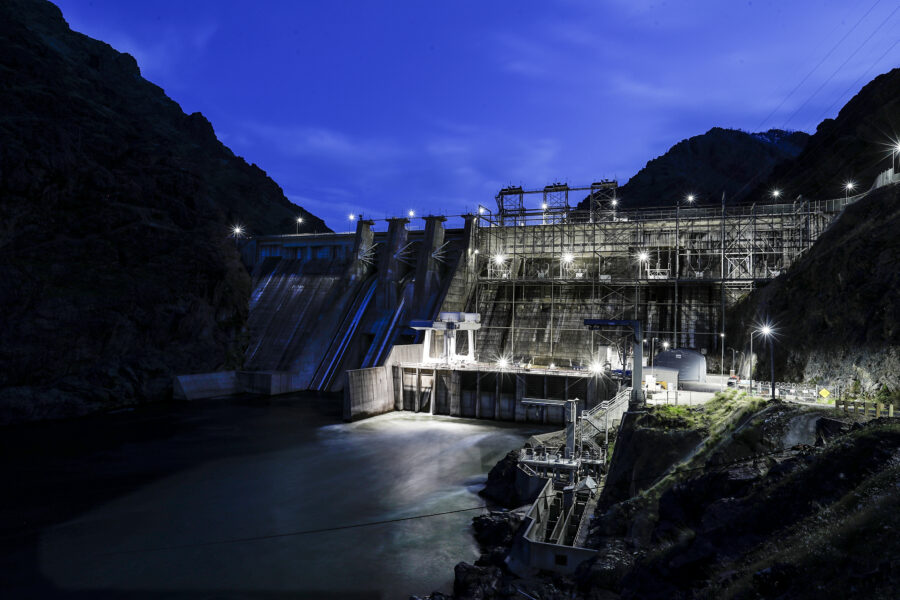World leaders may be struggling to reach a landmark agreement at COP28. But just outside the closed-door negotiations, the United Nations’ annual climate summit proved to be a bonanza of lucrative business deals, including for the oil and gas industry.
On Tuesday, Saudi Arabia and a small group of other oil-producing countries continued to block efforts to include a phaseout of fossil fuels as part of a final deal, sending the two-week conference in Dubai into overtime and raising serious doubts on whether the Paris Agreement targets can still be achieved. A draft deal, unveiled Monday, makes cutting oil and gas production and consumption optional.
“We don’t want to sign the death certificate of our islands,” said Toeolesulusulu Cedric Schuster, Samoa’s minister for natural resources and the environment, regarding the draft deal.
While many delegates expressed deep frustration and disappointment on what was scheduled to be the summit’s last day, a very different mood was felt beyond the U.N. security gates.
Over the last two weeks, the streets of Dubai bustled with activity. Battery entrepreneurs and solar panel manufacturers set up kiosks to showcase their wares. Venture capitalists and financial brokers scoured the scene for their next deal. There were pesticide makers, mining executives, real estate developers and tech startups in attendance. Representatives for the global meat supplier JBS made an appearance, as did the fertilizer giant Nutrien, the food giant Nestlé and the pharmaceutical giant Bayer.
All in all, some 70,000 of the 100,000 people who registered showed up to the climate summit, which many compared to a “trade fair” this year. There was even a light show, the New York Times reported.
“I call it climate expo 2023 and I’m not saying it in a pejorative sense,” Robert Stavins, an energy economist at Harvard University, told the Times at the conference. “This is the one everyone comes out to. People go because other people go.”
Business representatives far outnumbered government officials this year, Reuters reported, giving some climate advocates hope for the advancement of climate-friendlier companies. One owner of a climate startup that produces protective coating for solar panels, said he expects to walk away from COP28 with $5 million in potential deals.
Another entrepreneur—this one pursuing green cement manufacturing—said he believes his business value will double by the end of the talks after receiving unprecedented access to government officials and company executives. “We have gained reach within this conference that was completely beyond our expectations; private equity, banks, massive project developers, construction companies, concrete and cement companies,” he told Reuters.
Bill Gates, founder of Microsoft and a major funder of climate initiatives, even signed a tentative deal with COP28’s host country, the United Arab Emirates, to do business with his company that develops advanced nuclear reactors.
But many advocates were wary of the heavy presence of business at what has historically been a serious and somewhat obscure conference for governments to negotiate the terms of the Paris Agreement. Activists were especially concerned about the 2,456 lobbyists for fossil fuel-related industries who had registered to attend.
Among the many deals successfully brokered during the summit were new contracts for oil and gas development, which climate scientists and energy experts say jeopardizes global climate goals. According to the Reuters’ report, Nigeria’s state-owned petroleum company, for example, agreed to develop a liquified natural gas project with the Chinese company, Wison Heavy Industry Co.
This year was also the first time in COP’s 28-year history that an ExxonMobil CEO attended the summit. In fact, the president of COP28 this year, Sultan al-Jaber, is himself the head of a major global oil company, the UAE state-owned Abu Dhabi National Oil Company.
In late November, just three days before COP28 kicked off, al-Jaber was accused of planning to use the climate summit as an opportunity to strike oil and gas deals after BBC News and the Centre for Climate Reporting released internal documents showing that the UAE had set up meetings to discuss fossil fuel deals with at least 15 countries during the talks.
“These allegations are false, not true, incorrect and not accurate,” al-Jaber told reporters in response to the BBC story. “I promise you, never ever did I see these talking points that they refer to or that I ever even used such talking points in my discussions.”
More Top Climate News
Wall Street Gets Ready to Cash In on $1 Trillion Climate Market: As the carbon offset market gets a new lease on life from the COP28 climate summit, Wall Street is racing to get a foothold in what’s projected to become a $1 trillion business, Alastair Marsh reports for Bloomberg. Carbon offset markets work by giving companies credit for reducing carbon emissions elsewhere instead of cutting their own emissions. A steel company pays for a project to plant trees, which absorb CO2, for example, allowing it to “offset” its own carbon emissions. Critics say such offset projects are rarely effective.
Half of Republicans Support Biden’s Push to Cut Emissions, New Poll Says: Roughly three out of four Americans support the federal government pursuing policies that aim to significantly reduce greenhouse gas emissions, including 50 percent of the respondents from that pool who identify as Republican, according to a new poll released by CNN. Those Republicans are joined by nearly all Democrats and 76 percent of independents who said on the survey that the U.S. should slash its climate-warming emissions by half by 2030, providing an interesting data point ahead of the 2024 elections.
Azerbaijan to Host COP29 After Russia Backs Bid: Azerbaijan will host next year’s global climate talks in its capital city of Baku, breaking a months-long stalemate caused by the war in Ukraine, Bloomberg reports. The decision was reached unanimously on Saturday after the move was backed by Russia, which had been blocking any bid by a European Union member because of the bloc’s support for Ukraine. It marks the third year in a row that the U.N. climate summit will be hosted in a major oil-producing country with autocratic leadership.
More COP28 Updates
COP28 Pledges Aren’t Enough to Limit Warming to 1.5 Degrees, IEA Says
US Opts Out of Dutch Plan to End Fossil Fuel Subsidies at COP28
New UN ‘Roadmap’ Lays Out Global Vision for Food Security and Emissions Reductions
Protesters Encounter ‘Shocking Level of Censorship’ at Climate Talks
Specter of Second Trump Term Looms Over Global Climate Talks
Today’s Indicator
44,000
That’s how many plant and animal species are now threatened by extinction, in part because of climate change, according to an update to the International Union for Conservation of Nature’s endangered species list. The update added 2,000 new species to the list.









